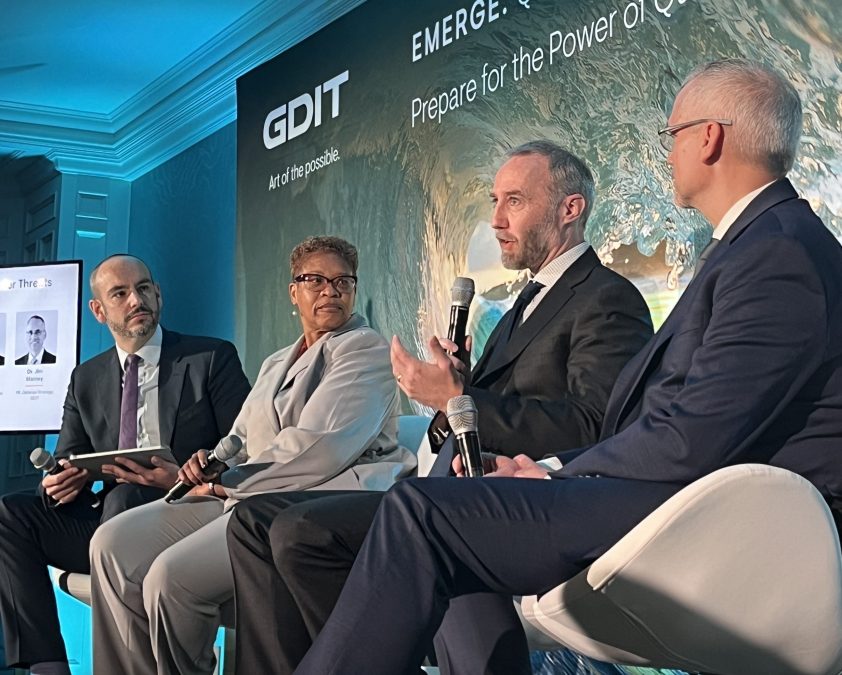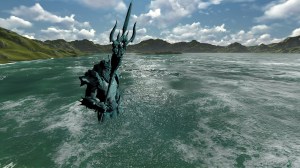Navy eyes quantum tech to simulate warfighting probabilities

U.S. Navy experts are leading a diverse variety of research and development pursuits to strategically prepare for the approaching era of post-quantum cryptography — and to reap the benefits of next-generation quantum technologies for defense and national security missions.
“I think it’s going to be exciting to see what happens here,” Dr. Dan Gunlycke, the Naval Research Laboratory’s lead for quantum computing and technical director of the Naval Quantum Computing Program Office in the Department of the Navy, told DefenseScoop on Tuesday.
Broadly, quantum information science (QIS) is an emerging and likely disruptive technology field that involves investigating and applying complex phenomena that occur at atomic and subatomic levels to process and move information. Researchers and scientists predict it will enable transformational science, engineering and communication applications as early as this decade.
The Naval Research Laboratory has been conducting fundamental QIS research for nearly 3 decades — particularly, in key areas of positioning, navigation and timing, computing, sensing, and algorithms.
During a panel at GDIT’s Emerge Quantum summit hosted by Scoop News Group on Tuesday, Gunlycke detailed how the lab recently produced a roadmap for quantum development across appropriate application areas and established a new quantum computing program office “to kind of bring everything together.”
“Quantum goes across everything — so, we really have scientists out in multiple divisions. And now, we’re setting up this broader umbrella where we can collaborate,” he told DefenseScoop on the sidelines of the event.
In terms of ongoing research, one area where the Navy sees potential opportunities for game-changing quantum applicability is to simulate the probability of outcomes for risk assessments.
“We see a lot of people in this room together. Let’s say that each one of you is trying to make a decision and we have 100 people in here. The number of outcomes, if it’s a binary decision, is two to the power of 100. That’s an enormous number. So, if we want to try to predict or calculate the probability distribution, it’s almost impossible with classical means. … But if you start to communicate with each other and have a lot of interactions, it becomes very hard. That’s what we see in what the warfighter is facing. So when you have a peer adversary with a lot of actors in it, they communicate and make decisions together as a unit — and that’s just very, very difficult to predict,” Gunlycke explained on the panel.
After the discussion, he told DefenseScoop that with quantum computers, computational space grows exponentially — and therefore could be useful for such warfighter probability simulations.
In response to a question about the training data that’s underpinning that algorithmic development, Gunlycke said: “I can’t go into too much detail on that. But there are different datasets. This technology hasn’t gotten that far — in the sense that we can still use even public datasets and try that out. And then, as the potential application matures, then we transition to more sensitive datasets.”
Although he and his team recognize that, as he put it, “there is still a big step between where we are today and getting to this point” of fault-tolerant, fully realized quantum computers, Gunlycke also noted that he’s confident that “the fundamental technology and the principles are there.”
“I think that’s why quantum computers are getting so much attention. All of these companies, … they wouldn’t start investing if they couldn’t see a profit. So I think this is not a hypothetical area — it’s a real area. What we still don’t know is how fast it’s going to develop,” he told DefenseScoop.






